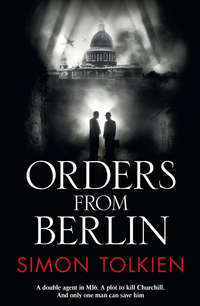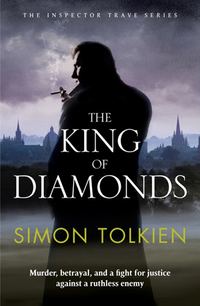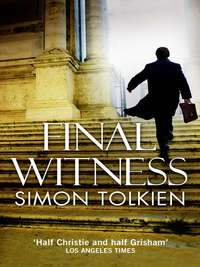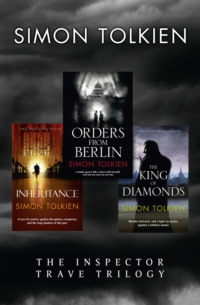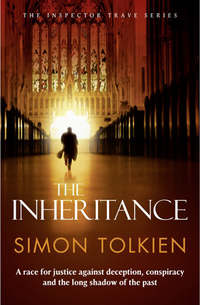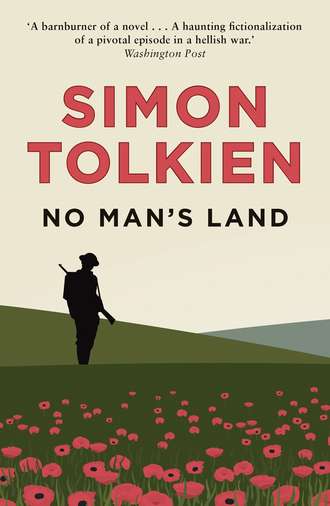
Полная версия
No Man’s Land
‘You’re right, Rawdon,’ he said. ‘Same as the timber props – we prefers ’em to the steel ones cos you can hear ’em creak and whine afore they go.’
Adam didn’t know if he could hear creaking or whining. But he could feel the millions of tons of earth and rock over his head bearing down on him, ready to bury him alive. It was intolerable, insupportable, more than he could stand. The tidal wave of his panic burst out, swamping his consciousness, and he fell to the ground in a dead faint.
Chapter Six
On an afternoon in the late summer Adam went for a walk with Ernest, who had the day off from the screens. Coming out of the house, turning away from the mine and into the light of the rising sun, they raced each other up the hill to the oak tree on the ridge. Adam was far ahead by the time they reached the top. He was a natural athlete and his growing prowess at football had helped him win friends in the town, even though there were still some who continued to give him the cold shoulder. Rawdon was their leader and he never tired of telling anyone who would listen how Adam had gone down the mine to ‘see ’ow the other ’alf live’ and had had to be hauled out unconscious in an empty coal tub.
The shame of his misadventure gnawed at Adam far more than he was willing to admit. It wasn’t just the humiliation – his struggles with adversity had given him a strong sense of his own worth and he was never going to be fatally undermined by jibes thrown at him in the street. It was his verdict on himself that made him suffer. He had set himself a challenge when he went down the mine and he had fallen short. And it was hard to look a miner in the eye when he knew and they knew that he could not last a single morning in the subterranean darkness where they laboured all their lives.
Adam wasn’t used to failure. His instinct was always to try and try again until he had overcome the hurdle that had first defeated him, but this time there was no opportunity for redemption. He wouldn’t be allowed back in the mine even if he asked to go. Not after what had happened. And so every day he was left to gaze over at the giant headstocks with their great spinning wheels and feel their reproach. Except that today they were standing motionless and from their vantage point at the crest of the hill Adam and Ernest could see lines of dejected men trooping home from the pit. They had been let off early for the third time that week. There was less demand for coal in the summer and so there would be less in the men’s pay packets come Friday night.
‘It’s hard on my mother, hard on all the women,’ said Ernest, leaning back against the tree trunk with a sigh. ‘It’s the old story: prices go up and wages go down. And when the women complain the men slink off out the back door to drown their troubles at the King’s Head where they’ve got a nice fire and a smiling barmaid, and then there’s no money left to pay the bills.’
‘It was like that in London too,’ said Adam. ‘Except that it was the other way round: the building trade was slack in the winter and picked up in the summer.’
‘Well, the answer’s the minimum wage,’ said Ernest. ‘Everybody knows that. But the owners won’t pay it so something’ll have to give.’
‘There’ll be a strike – is that what you mean?’ asked Adam. Just saying the word made him nervous, bringing back those terrible last days in London and his mother’s untimely, unnecessary death.
‘Yes, I expect so. My dad wants to do something, I know that.’
‘And mine doesn’t?’ asked Adam.
‘I don’t know. My brother says he’s trying to negotiate but there’s a feeling that that’s not going anywhere, that the owners are just playing him along.’
‘Taking him for a fool?’
‘I didn’t say that,’ said Ernest sharply. ‘Look, I don’t know much more than you do. My dad doesn’t say much and a lot of what I hear at the pithead is just rumour – men complaining, letting off steam.’
Adam nodded, but he knew himself that all was not well between his father and Edgar. Ernest’s father had gone out of his way to be kind to Adam after the debacle in the mine, telling him that a lot of ‘first-timers’ found it hard to cope with the bad air and the noise in the deeper seams, but, as far as Adam was aware, there had been no rapprochement between the two cousins. They seemed ill at ease in each other’s company and the atmosphere in the house was strained as a result. Adam remembered the rebuke that Edgar had administered to his father before he fainted away, and he wondered how much longer he and his father would be welcome under Edgar’s roof.
But the ill feeling had certainly not affected his friendship with Ernest. As the months had gone by, he had grown to trust and admire his second cousin. He liked Ernest’s lack of prejudice – the way he insisted on making up his own mind about issues even if the majority disagreed with him, and the way he never complained about his lot; this quality seemed even more impressive to Adam after he had seen at first hand the awful driving monotony involved in working on the pithead screens. If Ernest had a fault it was a lack of ambition. His world was what it was and he had no hope of changing it. He was stoic without being cynical, and his loyalty was absolute.
‘Come on,’ he said, getting to his feet. ‘We’re not here to talk about the mine, not on my day off. There’s somewhere I want to show you.’
They followed the path over the ridge and were suddenly in a new world. The mine and the grey monochrome houses of the town disappeared as if by magic, replaced in an instant by a pastoral landscape of woods and fields and streams unchanged in centuries. There was the sound of birdsong in the air and a red kite circled slowly overhead, allowing the fluctuating eddies of the faint breeze to direct its flight.
After a mile or so Ernest stopped, pointing down to his left where they could see over a long grey brick wall to where the pale stucco exterior of a substantial country house glittered in the golden light of the afternoon against a background of thick-leaved elms and, closer in, rows of tall cypress trees, pointing like long dark green fingers up towards the sun. Between the two wings, the Palladian façade with elegant sash windows rising symmetrically on either side of the entrance portico was half reflected in the still surface of a lake, which abutted a wide manicured lawn that descended on a gentle slope from the quadrangular courtyard and ornamental stone terrace at the front of the house. Two regal swans were floating on the water, preening their long white necks.
‘Scarsdale Hall,’ said Ernest, theatrically waving his hand. ‘Home of Sir John, who pays me a pittance for cleaning his coal.’
‘I’ve seen him,’ said Adam. ‘He comes to church sometimes with his wife wrapped up in furs and a son who doesn’t like me.’
‘Why?’
‘Because he doesn’t think I’ve got the right to look at the parson’s daughter.’
‘Miriam – she’s pretty, isn’t she?’
‘Yes. How do you know? I thought your family never went near a church.’
‘We go there for funerals. Everyone does, whether they believe in it or not. A miner who’s got blown to bits in a firedamp explosion deserves a good send-off; and it makes the family feel we care, which is what matters. The parson understands that – I’ll say that for him. And Miriam looks beautiful in a black dress,’ said Ernest with a grin.
‘You like her, don’t you?’ he added, laughing now at Adam’s discomfort. He’d noticed how the colour had risen to his friend’s cheeks each time he said her name. ‘Well, all I can say is: Don’t let her mother know how you feel or she’ll have you locked up. She’s an invalid, never leaves the house, but that doesn’t mean she’s not the one who wears the trousers in the marriage. The parson’s hard up and Mrs Vale wants her daughter to marry money so I suppose Brice Scarsdale would fit the bill.’
‘Don’t say that,’ said Adam fiercely. ‘She deserves better than him. He’s the worst of his kind – stupid, selfish, arrogant—’
He broke off, suddenly self-conscious, and Ernest looked at him curiously. He was unused to his friend becoming so emotional, spitting out his words like venom.
‘You’re right,’ he said. ‘No one likes Brice and Miriam’s a nice girl, but their lives aren’t like ours. The Parsonage and the Hall are close to where we live but they might as well be on a different planet. See what it’s like in church next time you go there: the poor and the miners at the back; the shopkeepers and the managers and the farmers in the middle; and Sir John up at the front. Everyone has their place in the world and you know where ours is.’
‘Well, I don’t accept that,’ said Adam. ‘She shouldn’t have to marry a worthless parasite like Brice just because her mother tells her to. She should be able to choose whom she wants when the time comes.’
They relapsed into silence, each lost in their own thoughts, interrupted only when Ernest produced two slices of his mother’s freshly baked fruit cake from his snap tin which they ate slowly, savouring the taste as they gazed down at the great house and the sun glinting on the golden weathervane up above the stone gables.
‘It’s beautiful, isn’t it?’ said Ernest.
‘Yes.’
‘But paid for with so much suffering,’ he said thoughtfully. ‘Look down there, outside the wall – see the farmworkers’ cottages all nicely thatched and weatherproof. Must make Sir John feel like he’s a model landlord when he drives past them in his Rolls-Royce, but the truth is they’re just a sideline. The real money comes from the mine and he never goes near that; leaves it instead to Atkins and the other managers to get their hands dirty. It’s over the hill and out of sight. And what you don’t see, you don’t have to feel responsible for.’
‘And I suppose it’s my dad’s job to try to make him see,’ said Adam.
‘Yes, that’s right, and I don’t envy him the task. With Whalen and my dad on one side and blind Sir John on the other, he’s got to feel like he’s being pulled apart by a couple of riled-up pit ponies,’ said Ernest, shaking his head.
‘Do you know who Whalen reminds me of?’ asked Adam, remembering his encounter with Rawdon’s father in the mine – the hard unforgiving voice and the cruel flinty eyes.
Ernest shook his head.
‘My dad – he used to be just like him. Any excuse to fight the oppressor and too bad if people got hurt in the process. He was a fanatic, a true believer, until my mother died. And then everything changed. He’s a better man now, more sensible, more reasonable, but it’s also like he’s lost his spark, his passion – whatever you want to call it. It’s like something in him died when she died. God knows how it’ll all end,’ he finished sadly, sounding like an astrologer who’d lost his ability to read the stars.
‘I’ll tell you how it ends,’ said Ernest, looking hard at his friend. ‘No, better – I’ll show you. Come on. It’s not far.’
They walked on quickly now with Ernest setting the pace. Over another hill and down into a valley where the path passed through the cool shadows of a beech wood, where bluebells grew in clusters beneath the gnarled mossy green trunks of the old trees. And then out into the open again as they climbed up the other side, walking between tall grasses under the cloudless azure sky.
‘You’re a liar,’ said Adam, stopping to wipe the sweat from his brow. ‘This is twice as far as we walked before.’
‘But worth it,’ said Ernest, beckoning to his friend to join him on the ridge. ‘Worth it to see what the end of the world looks like.’
Adam stood stock still, staring down into a bowl-shaped valley similar to the one containing the Scarsdale pit but smaller and with just a single headstock at the bottom that had toppled over on to one side. Its wheels were brown with rust and the shack-like buildings around the pithead were in a state of pitiful disrepair, left to rot amid a sea of weeds and strangling vines. And the same was true of the miners’ houses that stretched up the sides of the valley – the same mean streets as in the Scarsdale valley but built here of less durable materials which hadn’t stood the test of time. A few of the windows still had broken glass but most were just holes in the walls – openings into black empty interiors, home to rats and spiders.
‘What happened?’ Adam asked.
‘The seam was exhausted so they went down deeper; too deep, and the mine flooded. Some miners were drowned and the rest were laid off, so they moved to Scarsdale or other pits and the village died. Thorley it was called, and now the name means nothing.’
‘When did it happen?’
‘Fifteen years ago – same year I was born. In another fifteen there probably won’t be anything left and no one will even know that there was once a mine here and a village and a pub and a union. And one day Scarsdale will go the same way and there’s nothing my dad or your dad or Whalen Dawes can do to stop it.’
They had gone down the hill a little way to where a street of tumbledown houses began. On a whim Adam pushed open the rotted door of the first one they came to. It creaked on its rusted hinges and immediately a pair of angry black birds – rooks or crows, it was too quick to know which they were – flew past him up into the air where they were joined by a flock of others, rising in a whirr of wings from the eaves of the other houses. They circled overhead, cawing angrily at the interlopers.
‘Be careful,’ said Ernest, who had stayed back in the street. ‘The roof will cave in if you give it half a chance. A lot of them already have from the looks of it.’
But Adam didn’t respond. He had moved to the centre of the room, standing gingerly on the rotten joists that were all that was left of the floor as he listened intently to a sound of rocking that was coming from the upper floor. In the corner a rickety staircase was missing several of its steps. He didn’t need Ernest to tell him that it would be stupid to climb it and yet he didn’t think twice. He had to see who or what was making the noise above. He was halfway up when it stopped and the stairs began to give way beneath him. The nightmare memory of falling in the pit cage flashed across his mind and he reached out and grabbed the newel post at the top of the stairs and pulled himself up to safety just as the staircase collapsed behind him and the house seemed to tremble on its foundations.
He was in a square room, standing across from a small sash window that had long ago lost all its glass. Below the sill an emaciated black-and-white cat was standing, precariously keeping its balance on a rocking chair that was rocking violently to and fro again, responding to the shaking of the house. The animal was clearly enraged – its fur was standing on end, its back was arched and an angry snarl had exposed its teeth. Adam just had time to take a step back and put his hands up to protect his face before it sprang at him through the air, scratching his arms before it leapt down through the hole in the corner where the staircase had been and disappeared.
Adam looked down and inspected the damage: livid lacerations along the backs of both forearms that were starting to bleed. He took off his shirt and used the sleeves to staunch the blood. He felt faint and sat down on the cherry-wood chair, keeping his feet on the floor to stop it rocking. He could see it was handmade, each arm and leg lovingly carved and crafted to enable it to stand the test of time. The miner who had lived here had made it, Adam guessed, for his wife perhaps to sit at the window and look out at the sun rising over the hills.
He closed his eyes for a moment, imagining the past, and was startled by Ernest shouting his name from down below.
‘I’m all right,’ he said, getting up and leaning out of the window. ‘I’ll come down in a minute.’
‘How? You’ve broken the staircase, you idiot. I told you to be careful,’ said Ernest, laughing. ‘Wait there and I’ll find something for you to jump down on to.’
Adam turned to go back and sit in the chair but jumped, knocking it over, when a mouse scuttled under his feet, looking back at him for a moment before it vanished into a hole in the wainscot. And down next to the opening, he saw a toy train half hidden by some rags. He bent down and picked it up. It was made out of the same shining cherry wood as the rocking chair with each detail beautifully executed down to the wheels that slowly turned as he rolled it to and fro along a floor plank.
The chair for the wife and a toy for their child: Adam could see them in his mind’s eye, looking out of the window at just this time of day, waiting for the miner to return home, putting their trust in a future which was about to be snatched away from them. Just like his own mother had in London. And thinking of her again, he suddenly saw her bedroom in the house in Islington as clearly as if he had been transported back in time and was standing on the half-landing looking in. There was the little desk in the corner where she did her accounts, there the cross on the mildew-stained wall, and there the empty bed covered with the cheap eiderdown to which she would never return. She had hoped and dreamed too, unaware of what lay in store for her just around the corner.
‘Come on,’ shouted Ernest, his voice breaking in harshly on Adam’s reverie. ‘Time to jump!’
Adam looked down and saw that Ernest had dragged an old mattress below the window.
‘Better land on your feet,’ he said. ‘I wouldn’t want to put my face in this fleabag.’
Adam tried to lift the sash but it came away in his hands and so he knocked away the rest of the frame and laughed when he hit the ground amid an explosion of dust and feathers. He was young and the strong blood pumping through his veins wouldn’t let him stay melancholy for very long.
Chapter Seven
They had been at Scarsdale for almost a year and Adam had his own life now. He rose early to take the bus into Gratton and worked hard at his books all day and in the evening too, when he laboured over Latin and Greek translations, straining his eyes to read by the light of the dim oil lamp while Ernest snored in his bed on the other side of the room. Adam loved the ancient world. He’d first heard many of the stories from his mother. She’d begin by reading from books but would then put them down and carry on the narrative herself in her own words. She had a gift for painting word pictures and he could remember how as a child he’d seen in his mind’s eye Odysseus and his comrades waiting nervously inside the wooden horse as the unsuspecting Trojans dragged it inside the gates of their city or Caesar stabbed to death on the ides of March. Listening to her, the heroes and villains of the past became more real than the people in his own life; and now, reading the ancient books, Adam felt the same thrill again.
He liked the school and he enjoyed being the headmaster’s prize pupil. But in the house at the end of Station Street he was less happy. The atmosphere remained strained and he could see how his father was being eaten up with stress and anxiety. Daniel’s proud receipt of the glowing reports that his son brought back from school seemed to be the only times when Adam saw his father happy. Otherwise he was a shadow of the man he’d been in London and it was hard for Adam to recognize him as the same happy-go-lucky person who had challenged the gypsy champion to a boxing match in the market square and come away with ten shillings jingling in his coat pocket.
It was Daniel’s isolated position as negotiator between the union and the owners that was the source of the trouble. As he had promised Adam he would do in the train coming north, he had tried to negotiate solutions to disputes rather than use them as an excuse for escalating conflict. And in the process he had developed a good relationship with Sir John Scarsdale and the managers, but mutual respect had not brought with it significant concessions. The essence of the problem was that Scarsdale was an old pit. In its day it had filled the coffers of Sir John’s father and financed handsome improvements at Scarsdale Hall, including the renovation of the agricultural cottages that Ernest had pointed out to Adam on their walk. But since the turn of the century productivity had steadily fallen. In response the miners had dug deeper and the narrow Oakwell seam had recently yielded good coal, but the greater depth brought more risks and the need for increased expenditure on safety.
Sometimes there were ad hoc union meetings on Friday evenings at Edgar’s house after the week’s money had been divvied up among the butty teams, and, from his bedroom up above, Adam would hear voices rising in anger and accusation. It was usually Whalen Dawes who took the lead. He had a way with words and knew how to play on his audience’s fears, turning Daniel’s long hours closeted with Sir John and the managers against him.
‘You’re cosyin’ up with ’em,’ he’d say, taunting his enemy. ‘That’s what you’re doin’. Scarsdale gives thee a nice glass o’ wine from one o’ his deecanters an’ calls thee a gen’l’man an’ soon you’re eatin’ out o’ ’is ’and like a pussycat, while the likes o’ us are left to suffer, ’ackin out ’is coal in the dusty black darkness, earnin’ next to nowt.’
Daniel would deny the accusation but his words sounded empty and hollow when he had so little to show for his efforts. And when he was absent, Whalen would go further. ‘’E’s not one o’ us; ’e’s a southerner an’ ’e doesna think like we do,’ he would say, watching Edgar all the time out of the corner of his eye to gauge his reaction while the other miners muttered amongst themselves. He was itching to have Daniel removed as checkweighman so that he could be appointed in his place and take control of the local union, but he could not move without Edgar’s support and he wasn’t sure of that yet.
He decided instead to act when the chance came to take on Sir John himself. The deaths of two Scarsdale miners gave him the opportunity. For whatever reason there had been a recent dramatic increase in the number of firedamp explosions in the mine. The cause was in dispute: the management blamed it on the growing depth of the seams being mined, but the men said that the deputies were not taking enough precautions to measure methane levels before work began each day.
This latest disaster had been particularly bad as the exploding gas ignited the coal dust on the walls of the main tunnel in the Hillsborough district, causing a flash fire which trapped a collier and his filler inside their gate, so that by the time the fire truck arrived they had burnt to death.
The whole town turned out for their funerals, walking up the hill to the church in a solemn black line behind the two widows and the men’s brothers, who carried the Miners’ Federation banner unfurled above their heads. The colliery brass band brought up the rear, playing the funeral march. Walking beside his father, Adam felt moved by the silent dignity of the mourners, their steps measured against the muffled beating of the bass drum.
But when they got inside the church they stopped in surprise. Whalen and Rawdon were sitting in Sir John Scarsdale’s pew at the top of the nave, facing the parson in his black vestments, who was walking to and fro in front of the two coffins, which had been set up on trestles in front of the altar. He seemed agitated, apparently at a loss for what to do.
For several tense minutes there was a stand-off, broken only when Hardcastle, the mine manager, went up into the pew behind Whalen and leant forward, telling him in a loud whisper that he had to leave. But Whalen studiously ignored him, staring forward, waiting for the service to begin.
Hardcastle came back down the aisle and spoke to Daniel. ‘You’ve got to get him to move,’ he said.
‘Why? Is Sir John coming?’
‘Yes, he’s outside now with Lady Scarsdale. I sent Atkins back to stop them coming in but I can’t hold them much longer.’
‘I’ll try,’ said Daniel, getting up. ‘But I doubt it’ll do any good.’
Adam watched as his father went up to Whalen in the front pew and tried to get his attention. This time Whalen reacted. ‘Get thy arm off me, you lackey,’ he snapped, shouting out the insult for everyone to hear as he pushed Daniel violently away, causing him to stumble back and half fall on to Miriam, the parson’s daughter, who was sitting across the aisle.



